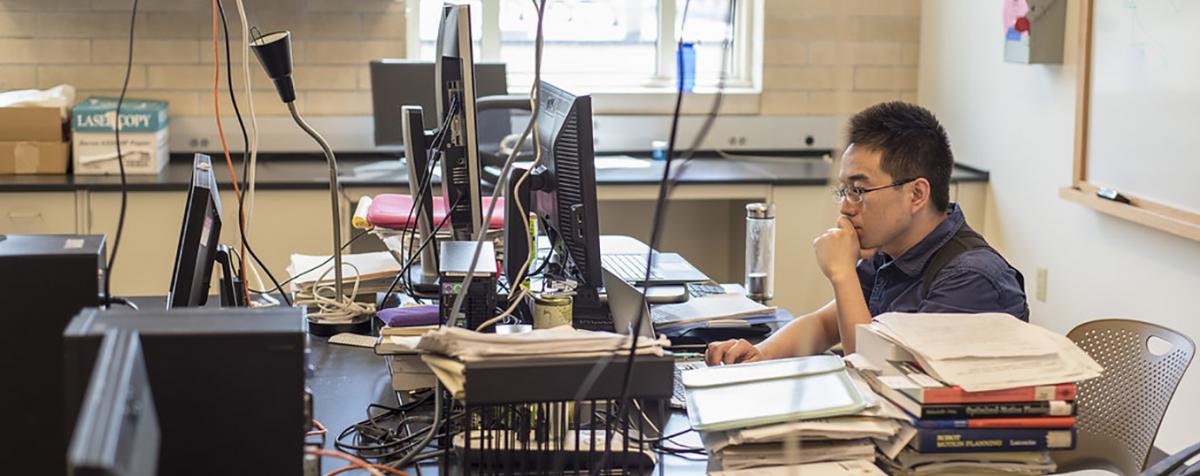Computer science encompasses the theory and techniques by which information is encoded, stored, communicated, transformed and analyzed. It is concerned with the theory of algorithms (that is, effective procedures or programs), with the structure of languages for the expression of algorithms, and with the design of algorithms for the solution of practical problems. A central concern is the study of the computer systems (hardware and software) for the automatic execution of these algorithms.
The department of computer science at the University of Denver offers a bachelor of science in computer science. The degree is strongly based in mathematics and, in fact, a student will automatically acquire sufficient credits for a minor in mathematics. One additional minor is required. The second minor may be in any discipline other than mathematics or computer science.

Featured Courses
COMP 3831
Game Capstone I
About this Course
Students design, build, test and debug a fully working game from scratch. Both art and programming are developed by the student teams with the instructor acting as a project manager to ensure that goals are met through the 10-week development process through various milestones. In addition to building the game, students learn group collaboration, software processes, testing, and the methodology for researching new game concepts to implement in their final project. Prerequisite: COMP 3821.
COMP 3723
Ethical Hacking
About this Course
Ethical hacking is the process of probing computer systems for vulnerabilities and exposing their presence through proof-of-concept attacks. The results of such probes are then utilized in making the system more secure. This course will cover the basics of vulnerability research, foot printing targets, discovering systems and configurations on a network, sniffing protocols, firewall hacking, password attacks, privilege escalation, rootkits, social engineering attacks, web attacks, and wireless attacks, among others. Prerequisites: COMP3361
COMP 3731
Computer Forensics
About this Course
Computer Forensics involves the examination of information contained in digital media with the aim of recovering and analyzing latent evidence. This course will provide students an understanding of the basic concepts in preservation, identification, extraction and validation of forensic evidence in a computer system. The course covers many systems level concepts such as disk partitions, file systems, system artifacts in multiple operating systems, file formats, email transfers, and network layers, among others. Students work extensively on raw images of memory and disks, and in the process, build components commonly seen as features of commercial forensics tools (e.g. file system carver, memory analyzer, file carver, and steganalysis). Prerequisites: COMP 2355.
Application Information
Take the first step toward your academic career at the Ritchie School and start your application today.




